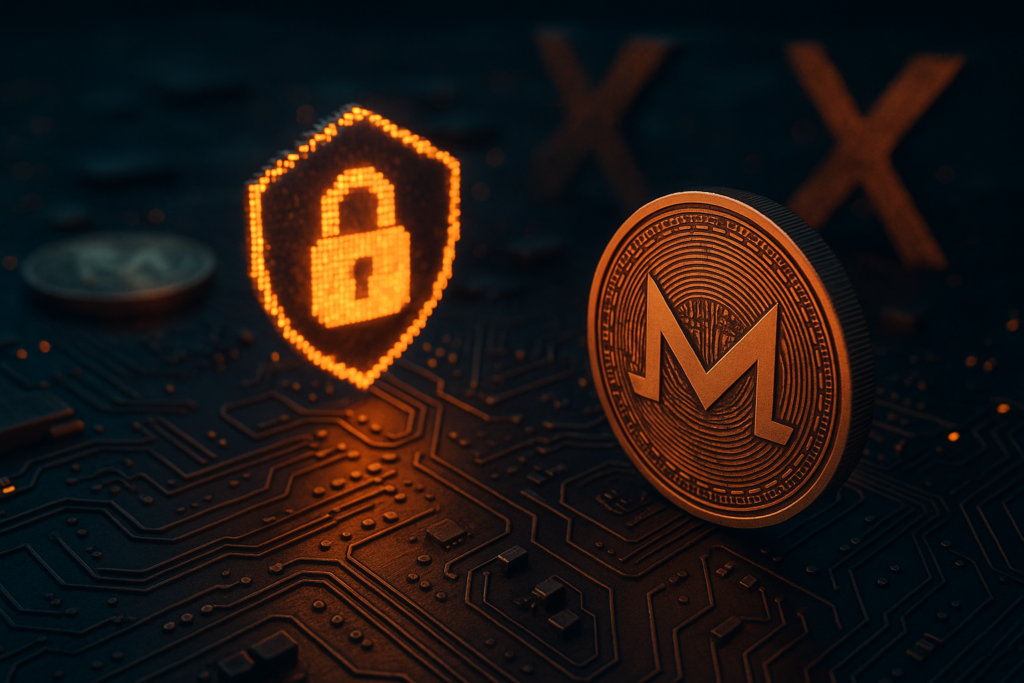The Monero blockchain recently faced a high-risk 51% attack attempt, but unexpected interference appears to have disrupted the offensive before it could destabilize the network.
Alleged DDoS Attack Hits Mining Pool Involved in Monero Takeover Attempt
A mining group aiming to gain majority control over Monero’s hashrate has reportedly experienced a significant drop in processing power, caused by what appears to be a distributed denial-of-service (DDoS) attack. The mining pool’s hashrate fell from 2.6 GH/s to 0.8 GH/s, severely limiting its influence on the network.

This has raised speculation that members of the Monero ecosystem may be employing defensive tactics to preserve the network’s decentralization. The alleged DDoS is said to be targeting servers responsible for orchestrating the takeover, likely via botnets linked to malware-infected systems.
The defensive attack may have stalled a full-scale network takeover.
Qubic Mining Pool Claims Targeted Interference
The mining pool involved in the Monero hashrate consolidation claimed it faced continuous network flooding for over six hours. While it implemented countermeasures, data from public monitoring services did not confirm any lasting disruption. Analysts noted normal server response times across several endpoints, suggesting the attack’s effectiveness may have been temporary.
Community Pushback Highlights Monero’s Privacy-Driven Culture
Monero’s unique privacy features have made it a preferred digital currency for anonymous transactions, which also puts it in the crosshairs of actors seeking centralized control for profit.
Efforts to dominate the Monero network through massive hashrate accumulation were met with rapid community awareness. The pool in question saw its dominance fall after users became informed of its intentions to redirect Monero mining rewards to fund unrelated token ecosystems.
The community’s swift mobilization signals Monero’s resilience against centralization threats.
Monero Maintains Network Security as Threat Recedes
While the takeover attempt highlighted vulnerabilities in proof-of-work blockchain governance, Monero’s decentralized base and real-time community response continue to serve as a deterrent against future 51% attacks.
Disclaimer
This content is for informational purposes only and does not constitute financial, investment, or legal advice. Cryptocurrency trading involves risk and may result in financial loss.

